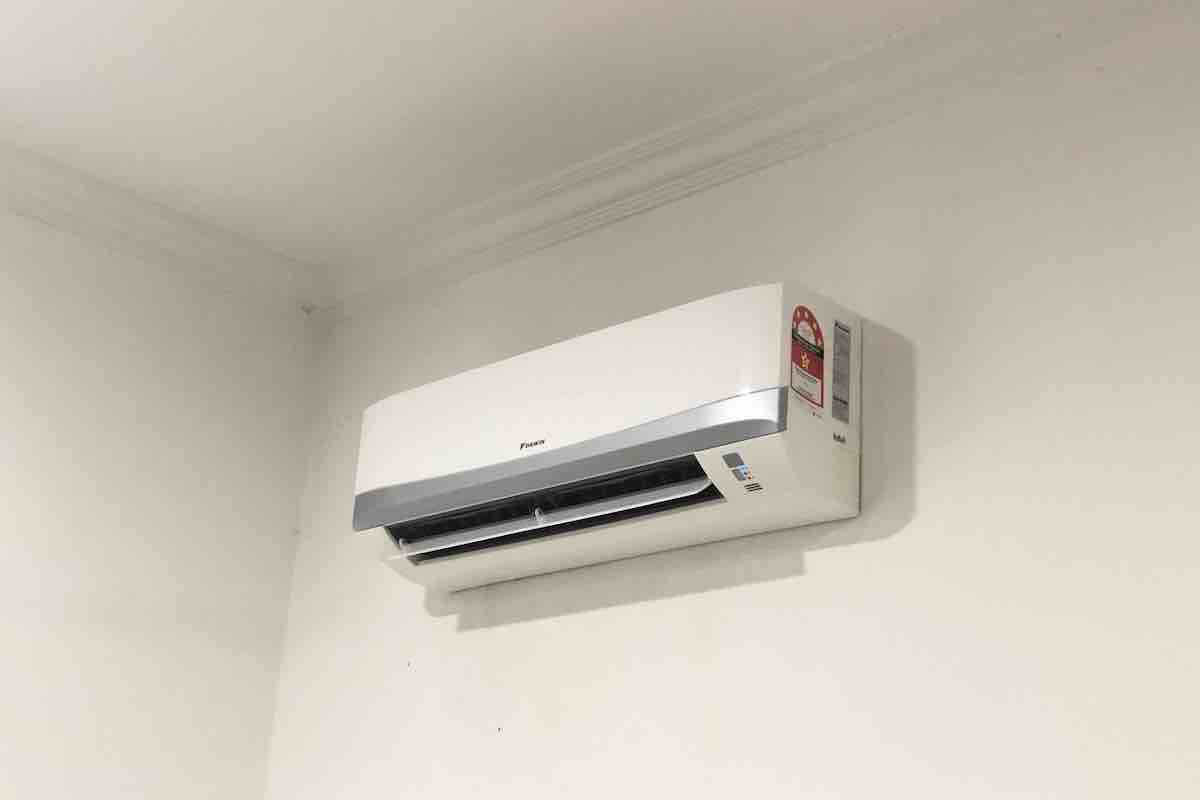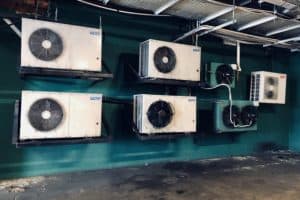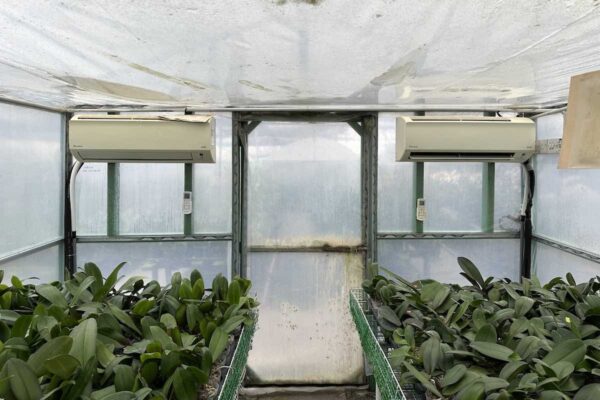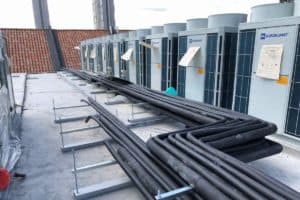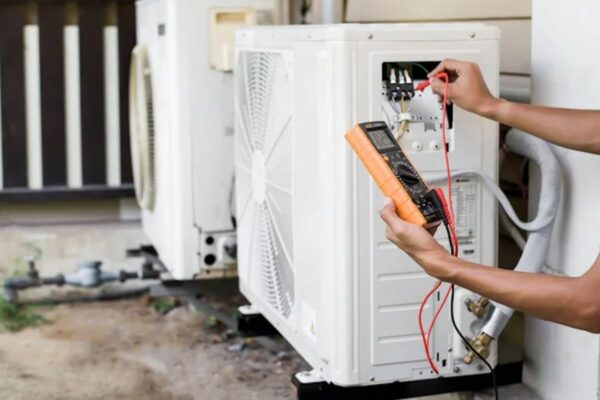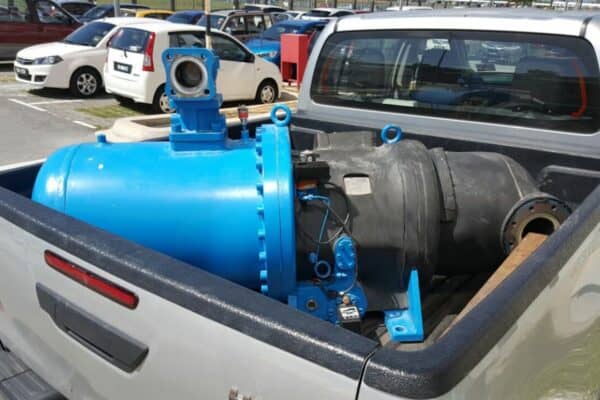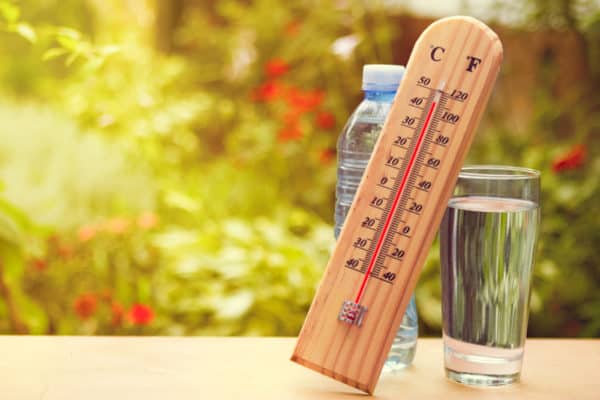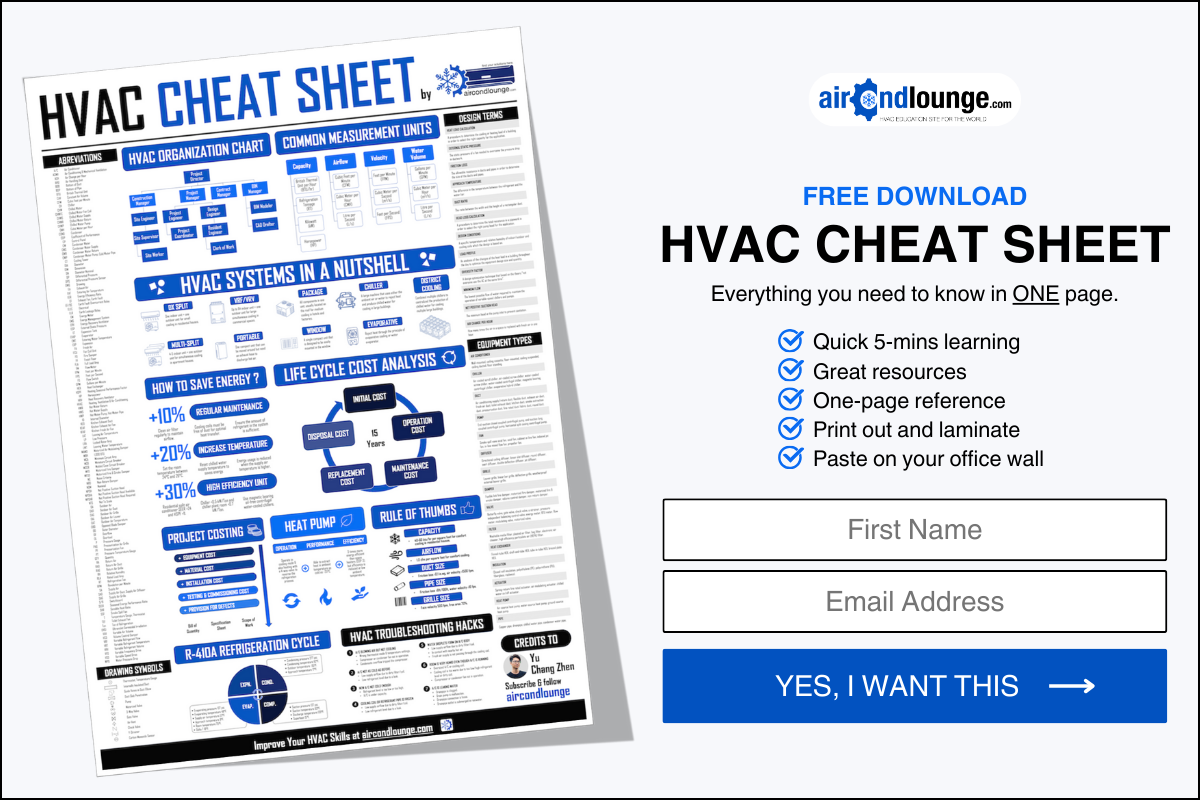Inverter Air Conditioner: A Complete Guide (for Beginner)
More and more people are switching to inverter air conditioners nowadays. People who are using inverter air conditioners often have positive comments. So, what are inverter air conditioners? How are they different from normal air conditioners and should you use inverter air conditioners?
I’m an air conditioning engineer. I use both inverter air conditioners as well as normal air conditioners for many years. So, for anyone who wants to understand inverter air conditioners even if you are not a technical person, this is the post for you.
It is easy for me to just tell you that inverter air conditioners are different from normal air conditioners (duh?) or, inverter air conditioners save more energy than normal air conditioners.
However, I think it is important to have at least an overview of inverter air conditioners so that you can make an informed decision. After all, an air conditioner often stays with us for more than 10 years.
What are Inverter Air Conditioners?
Inverter air conditioners are energy-saving air conditioning units equipped with an inverter-driven compressor. An inverter-driven compressor has the ability to increase or decrease its rotational speed thereby enabling inverter air conditioners to regulate their cooling capacity based on the needs.
Often, people who own inverter air conditioners tell you that inverter air conditioners can sometimes be noisy, especially during startup. However, they also may praise that inverter air conditioners provide much more comfort.
From research and survey to purchasing, installing and owning an inverter air conditioner, every step is a user experience. So, it makes sense for me to explain what are inverter air conditioners to you by going through these steps.
Types of Inverter Air Conditioners
There are a few types of inverter air conditioners available in the market. The most common type of inverter air conditioner is the split unit or sometimes known as the mini split.
Apart from that, western countries have inverter window air conditioners. Furthermore, they also have inverter centralized split air conditioners or better known as variable-speed air conditioners.
The word “inverter” refers to the compressor of the air conditioner. As long as the compressor of the air conditioner can regulate its speed and hence, its capacity, the air conditioner is considered as an inverter air conditioner.
However, some air conditioners are “partially inverter”. Meaning that they don’t have as much speed control as inverter air conditioners. These air conditioners are often known as two-stage air conditioners.
Installation of Inverter Air Conditioners
The installation of inverter air conditioners is 99% the same as normal air conditioners or non-inverter air conditioners. The only difference between them is the wiring work between the indoor and outdoor units.
Some technicians may charge more for the installation of inverter air conditioners due to the additional wiring work. Nonetheless, most inverter air conditioners have the same installation price as non-inverter air conditioners, especially if inverter air conditioners are very common in your area.
Maintenance of Inverter Air Conditioners
The maintenance of inverter air conditioners I would say about 80% the same as non-inverter air conditioners. In terms of basic cleaning work, both inverter and non-inverter air conditioners are exactly the same.
However, when it comes to part replacement, inverter air conditioners may be more expensive due to the additional inverter drive and electronic board.
Inverter air conditioners are more “intelligent”. So, they need an electronic board for controls.
Some people may tell you that inverter air conditioners break more easily, especially the electronic board. Also, we know that electronic boards are generally fragile.
However, inverter air conditioners today are extremely reliable. The one I used almost every day for more than 10 hours has never stopped working due to parts failure for almost 4 years now (touch wood).
Of course, the brand does matter. Low-quality inverter air conditioners are more likely to give off in a few years or sometimes, in a few months.
That’s why things like inverter air conditioners that involve some electronics and technologies are better to go for a more reputable brand.
Environmental Impact of Inverter Air Conditioners
Although we don’t really “see” it, inverter air conditioners have less impact on the environment. Inverter air conditioners are significantly more efficient than non-inverter air conditioners. Hence, electricity consumption is lower and thus, less fuel is being burned for electricity generation.
Many people have a misconception about the environmental impact of air conditioners. The truth is that air conditioners by themselves do not emit harmful gases that can pollute the environment but the high electricity consumption does.
“Air conditioners by themselves do not emit harmful gases that can pollute the environment but the high electricity consumption does.”
Right now, the world is still relying mostly on fossil fuels and natural gas for electricity generation. Power plants burn fuels to provide power but also emit harmful gases at the same time.
So, inefficient or power-hunger air conditioners are indirectly causing more pollution to the environment.
In certain cases, air conditioners do cause a direct impact on the environment. They run on a type of chemical mixture called refrigerant which is harmful to the environment if leaked.
However, refrigerants nowadays are significantly less harmful than before, especially the R32 refrigerant. So, if you care about the environment, choose an R32 inverter air conditioner.
What are the Difference Between Inverter and Non-Inverter Air Conditioners?
The difference between an inverter and a non-inverter air conditioner is hardly noticeable. But, if you look closely, inverter air conditioners are quite distinctive:
- Inverter air conditioners are more expensive than non-inverter air conditioners.
- Inverter air conditioners provide much more comfort than non-inverter air conditioners.
- Inverter air conditioners are more efficient than non-inverter air conditioners.
- Inverter air conditioners are quieter than non-inverter air conditioners after running for a while.
- Inverter air conditioners generally have more features than non-inverter air conditioners.
- Inverter air conditioners don’t have an overcooling issue most of the time.
The most obvious difference between an inverter and a non-inverter air conditioner is that an inverter air conditioner is more expensive. In Malaysia, an inverter air conditioner is about 30% more expensive than a non-inverter air conditioner with similar specifications.
The second thing you’ll notice about inverter air conditioners is that manufacturers offer more models and features for inverter air conditioners. It’s not hard to guess because inverter air conditioners are more efficient and therefore, it is important for them to promote and advance green technology to help the environment and comply with green policies set by the government.
Thirdly and the most beneficial one is that inverter air conditioners are more efficient. If you pay attention to the energy star rating, only inverter air conditioners have 5-star. Non-inverter air conditioners are always 2-star or 3-star, indicating that they are not very efficient.
Other differences between an inverter and a non-inverter air conditioner include comfort and noise during operation. In addition, inverter air conditioners hardly come by an overcooling issue because they can always reduce their capacity to provide the best comfort.
Are Inverter Air Conditioners Better Than Non-Inverter Air Conditioners?
By now, you will agree that inverter air conditioners are indeed better than non-inverter air conditioners in terms of performance and specifications.
However, whether or not an inverter air conditioner is better for you is another story to tell. I believe that the best air conditioner is the one that suits your needs.
If you don’t use the air conditioner very often or you don’t pay for the electricity, why care about efficiency? Vice versa, if you use the air conditioner for long hours or you have to pay for the electricity, why not invest in inverter air conditioners so that your monthly electricity cost is lower?
It all comes down to your needs and preferences. So, the price may be the only thing that left you on the edge between an inverter and a non-inverter air conditioner.
What is the Price of Inverter Air Conditioners?
Depending on where you live, the price of inverter air conditioners varies. Nonetheless, a good rule of thumb is to multiply the price of a normal air conditioner with the same capacity by 1.3 to estimate the price of an inverter air conditioner.
Air conditioners’ capacity can be found in BTU or Ton or horsepower or kW depending on where you live. If you happen to live in the following countries, I can give you some guidelines on the price of inverter air conditioners.
Inverter Air Conditioner Prices in Malaysia
Following is the estimated price of standard inverter air conditioners by capacity in Malaysia. Standard means the entry-level models that don’t have fancy features.
| Capacity | Estimated Price |
|---|---|
| 1.0 HP | RM 1650 |
| 1.5 HP | RM 2000 |
| 2.0 HP | RM 3250 |
| 2.5 HP | RM 3600 |
Following is the estimated price of premium inverter air conditioners by capacity in Malaysia. Premium models usually have more features like WiFi mobile app control.
| Capacity | Estimated Price |
|---|---|
| 1.0 HP | RM 2250 |
| 1.5 HP | RM 2750 |
| 2.0 HP | RM 4000 |
| 2.5 HP | RM 4400 |
When Should You Use Inverter Air Conditioners?
Inverter air conditioners are best for people who need cooling every single day because the return on investment is often as quickly as one year. The more you use the air conditioner, the better your return on investment.
Furthermore, if you are buying air conditioners for your own house, you probably have to pay for the electricity. Thus, using inverter air conditioners can save you a significant amount of money every single month.
“Always use inverter air conditioners if you always need air conditioning. You’ll save a lot of money.”
On the flip side, if you are not really using the air conditioner, it makes sense for you to go for the cheaper non-inverter air conditioners. Besides, if you plan to install the air conditioner in the guest room where it’ll be seldom in use, you may go for a non-inverter air conditioner.
In addition, if you are installing air conditioners in a house that you plan to rent out soon, you may also go for non-inverter air conditioners assuming that the electricity bill is paid by the renter.
Finally, if you care about the environment and feel like saving energy is kinda good also, go ahead and use inverter air conditioners.
Inverter Air Conditioner Brands
Nowadays, almost all air conditioner brands have inverter models. However, there are only a handful of reputable brands that have reliable inverter air conditioners.
Following are my top 3 brands for inverter air conditioners:
- Daikin
- Panasonic
- Mitsubishi
However, it doesn’t mean that other brands are not good. It’s just that I’m confident to recommend the above 3 brands for inverter air conditioners to my friends and family. That’s why I only listed them in this post.
Best Inverter Air Conditioners
There are many different inverter air conditioners available on the market. Some models have more features while other models are cheaper. So, which are the best inverter air conditioners?
In my opinion, the Daikin R32 FTKF series is a solid choice of inverter air conditioners. Next is the Panasonic R32 PU series of inverter air conditioners followed by the Mitsubishi R32 JS series.
If I were shopping for inverter air conditioners, I will definitely start by comparing the above three series. Although they don’t have fancy features, they have the best value for money.
My Recommended Inverter Air Conditioner
If you ask me to pick one inverter air conditioner, I will choose the Daikin R32 FTKF25B (1.0 HP) for the bedroom and FTKF35B (1.5 HP) for the living room. For a larger room, I will suggest the FTKF50B (2.0 HP) or the FTKF71B (2.5 HP).
Generally, a 1.0 HP inverter air conditioner is enough for a room with a floor area of about 150-200 square feet. For a 201-300 square feet room, you should be using a 1.5 HP inverter air conditioner.
If your room floor area is about 301-450 square feet, you may need a 2.0 HP inverter air conditioner. For a 451-600 square feet room, you should be using a 2.5 HP inverter air conditioner.
Conclusion
Inverter air conditioners are better than non-inverter air conditioners in terms of performance and specifications. However, people who don’t use the air conditioner frequently may not find inverter air conditioners attractive. Instead, it makes sense for them to go for the cheaper non-inverter air conditioners.
Nonetheless, from the environmental perspective, inverter air conditioners are recommended as they are more efficient, use less electricity and help to make the world a better place for tomorrow.
Lastly, consider my Mini Split (eBook) if you want to know how can you use Mini Split in your house. If you still have doubt or not feeling confident enough, feel free to consult me.
Consultation Service
Ask me for HVAC advice such as brand selection, best model, benefits, features, placement, duct size, grille size, how to design, design check, verification and other HVAC related queries.
If you have anything to add (or ask) about this topic, leave a comment down below!


